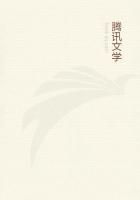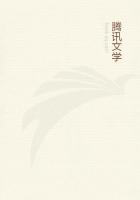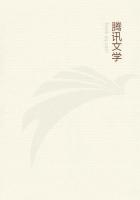'A good friend hast thou lost,' answered Rhiannon, and she went up to the castle and through the gate, which was open. There, in the centre of the courtyard, she beheld Pryderi standing, and hastened towards him.
'What dost thou here?' she asked, laying her hand on the bowl, and as she spoke she too stuck fast, and was not able to utter a word. Then thunder was heard and a veil of darkness descended upon them, and the castle vanished and they with it.
When Kieva, the wife of Pryderi, found that neither her husband nor his mother returned to her, she was in such sorrow that she cared not whether she lived or died. Manawyddan was grieved also in his heart, and said to her:
'It is not fitting that we should stay here, for he have lost our dogs and cannot get food. Let us go into England--it is easier for us to live there.' So they set forth.
'What craft wilt thou follow?' asked Kieva as they went along.
'I shall make shoes as once I did,' replied he; and he got all the finest leather in the town and caused gilded clasps to be made for the shoes, till everyone flocked to buy, and all the shoemakers in the town were idle and banded together in anger to kill him. But luckily Manawyddan got word of it, and he and Kieva left the town one night and proceeded to Narberth, taking with him a sheaf of wheat, which he sowed in three plots of ground.
And while the wheat was growing up, he hunted and fished, and they had food enough and to spare. Thus the months passed until the harvest; and one evening Manawyddan visited the furthest of his fields of wheat; and saw that it was ripe.
'To-morrow I will reap this,' said he; but on the morrow when he went to reap the wheat he found nothing but the bare straw.
Filled with dismay he hastened to the second field, and there the corn was ripe and golden.
'To-morrow I will reap this,' he said, but on the morrow the ears had gone, and there was nothing but the bare straw.
'Well, there is still one field left,' he said, and when he looked at it, it was still fairer than the other two. 'To-night Iwill watch here,' thought he, 'for whosoever carried off the other corn will in like manner take this, and I will know who it is.' So he hid himself and waited.
The hours slid by, and all was still, so still that Manawyddan well-nigh dropped asleep. But at midnight there arose the loudest tumult in the world, and peeping out he beheld a mighty host of mice, which could neither be numbered nor measured. Each mouse climbed up a straw till it bent down with its weight, and then it bit off one of the ears, and carried it away, and there was not one of the straws that had not got a mouse to it.
Full of wrath he rushed at the mice, but he could no more come up with them than if they had been gnats, or birds of the air, save one only which lingered behind the rest, and this mouse Manawyddan came up with. Stooping down he seized it by the tail, and put it in his glove, and tied a piece of string across the opening of the glove, so that the mouse could not escape. When he entered the hall where Kieva was sitting, he lighted a fire, and hung the glove up on a peg.
'What hast thou there?' asked she.
'A thief,' he answered, 'that I caught robbing me.'
'What kind of a thief may it be which thou couldst put in thy glove?' said Kieva.
'That I will tell thee,' he replied, and then he showed her how his fields of corn had been wasted, and how he had watched for the mice.
'And one was less nimble than the rest, and is now in my glove.
To-morrow I will hang it, and I only wish I had them all.'
'It is a marvel, truly,' said she, 'yet it would be unseemly for a man of thy dignity to hang a reptile such as this. Do not meddle with it, but let it go.'
'Woe betide me,' he cried, 'if I would not hang them all if Icould catch them, and such as I have I will hang.'
'Verily,' said she, 'there is no reason I should succour this reptile, except to prevent discredit unto thee.'
'If I knew any cause that I should succour it, I would take thy counsel,' answered Manawyddan, 'but as I know of none, I am minded to destroy it.'
'Do so then,' said Kieva.
So he went up a hill and set up two forks on the top, and while he was doing this he saw a scholar coming towards him, whose clothes were tattered. Now it was seven years since Manawyddan had seen man or beast in that place, and the sight amazed him.
'Good day to thee, my lord,' said the scholar.
'Good greeting to thee, scholar. Whence dost thou come?'
'From singing in England; but wherefore dost thou ask?'
'Because for seven years no man hath visited this place.'
'I wander where I will,' answered the scholar. 'And what work art thou upon?'
'I am about to hang a thief that I caught robbing me!'

